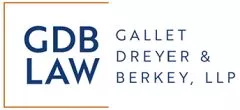Regulators have recently erupted with pronouncements regarding the alleged "abusive" practice of banks charging multiple bounced check charges when a check written by a depositor is returned unpaid, re-presented, and returned a second time. Both the New York State Department of Financial Services and the FDIC have recently suggested that banks that charge multiple insufficient funds fees may be engaged in an abusive or deceptive practice. The regulators fail to note that re-presentment is outside the control of the drawee bank and they ignore that overdrawing an account is almost always the depositor's fault.
Each bank is entitled to its own policy on whether to charge no NSF fee, one NSF fee or multiple NSF fees, provided that it makes proper disclosure. Even the Department of Financial Services has confirmed this when it said in Part 32 of its regulations that the decision of how much to charge as an NSF fee "is a business decision to be made by each bank institution in its discretion, according to sound banking judgment and safe and sound banking principles."
It may be an unfair or deceptive practice for a bank to charge multiple NSF fees on the same check when its account agreement or fee schedule fails to disclose clearly that it will do so. However, so long as the customer is made to understand the bank's policy in advance, and the bank complies with other legal requirements for imposing such fees, legal risk can effectively be eliminated. Therefore, we recommend that all banks follow these steps to reduce legal and regulatory risk:
- Senior officers should evaluate the bank's policy with
respect to the imposition of NSF fees and make an affirmative
decision as to whether to charge no fee, one fee or multiple fees
when returning a check unpaid. The decision should include an
evaluation of the normal banking risks of returning an item as well
as reputation and litigation risk.
- The bank should also determine the amount of the NSF fee, which
may be different for the first presentment and subsequent
presentments. For banks subject to DFS regulation, the bank should
make the evaluation required by Part 32 of DFS regulations, which I
discuss in further detail below. Banks not subject to DFS
regulation may want to consider a similar evaluation to reduce the
possibility that a depositor or regulator will claim that its NSF
fee is "unfair."
- Make sure that the policy distinguishes between checks that are
returned for insufficient funds and checks returned for other
reasons. Consider whether there may be other circumstances, besides
NSF returns, when the imposition of a fee is appropriate.
- Depending upon the nature of the Board of Director's
involvement in decision-making and how much authority it has
delegated to management, it may be appropriate for the Board or a
Board committee to ratify the decision.
- Document the decision in the bank's records and explain the
reasons for the decision.
- Review all customer account agreements, fee schedules and other
documents related to fees or returned items to make sure that they
clearly, in simple plain language, disclose the bank's policy
with respect to the imposition of NSF fees and whether the bank
will impose multiple fees in the event of re-presentment.
- Consider periodically alerting depositors to the bank's
policy. This can be done either generally, for all customers, or
specifically when the bank imposes an NSF fee or the bank bounces a
check.
- Review the bank's core processing system parameters to make sure that its computer system imposes only those fees that are authorized by the bank's policy. Consider whether the core system should be programmed to send a "do not re-present" message to the depositary bank. If such a message is sent, the fact that the bank may do so should be disclosed in its customer agreement.
Banks subject to DFS regulation must be reasonable in establishing an NSF fee. Part 32 of DFS regulations provides that a bank is deemed to have acted reasonably in establishing the amount of its charge so long as it considers these factors:
- the cost plus a profit margin, in providing the service;
- the deterrence of misuse by customers of banking services;
- the bank's competitive position in accordance with its marketing strategy; and
- the maintenance of the safety and soundness of the bank.
Consideration of each of these factors should be documented in its final decision. The fee may be different for commercial versus consumer accounts and the bank may impose different fees depending upon whether the check is paid or returned. However, consideration should also be given, especially with respect to consumer accounts, to regulations related to overdraft protection when an insufficient funds check is paid.
Although this issue may seem like a tempest in a teapot involving a relatively small amount of dollars, we have already been advised by one bank client that they received regulatory comments on this issue.
The content of this article is intended to provide a general guide to the subject matter. Specialist advice should be sought about your specific circumstances.

